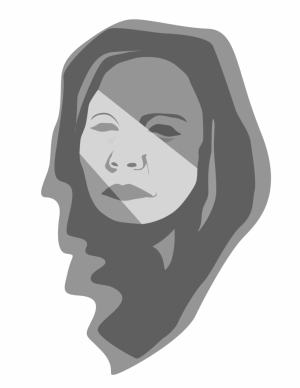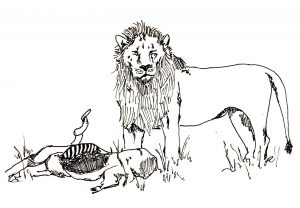Don’t Stay True to Yourself
October 22, 2017
Maybe you shouldn’t be true to who you are. When someone says you’re wonderful the way you are or to never change, it sounds uplifting. It’s a confirmation that someone finds us valuable, that we’re purposeful. Purpose is what drives us to forge ahead in life. And it seems like we all have a purpose, no? You’re an artist, I’m an engineer and that person is a doctor. We’re bookworms, or numbers people, introverted and extroverted. There is some purpose that underlies our everyday actions to make us valuable in the eyes of others. That means we should cultivate that driving passion into something that can bring meaning to our existence and justify our choices. But there’s also something meaningful in breaking that mold.
Perhaps second to wondering whether the chicken or the egg came first, free will is one of the most popular conundrums. Instead of taking up that debate, it may be more useful to utilize it.
David Dixon Jr, a Stanford professor, believes that an encouragement such as ‘stay true to who you are’ is, at it’s most extreme, an indictment to stay in a fixed place. We are left to explore who we are, that can be taken positively. It’s a prompt for adventure and to captain an exploration of our own being. But in another light, it can be seen as sand boxing our sense of self. We are not pilots of the open skies, we are drivers on a fixed route. Yes there is beauty to be found and new discoveries to be made, but we do not have control. It’d be living in a world with no free choice.
Perhaps, like David suggests, there is something profoundly wonderful in simply deciding to become good at math, regardless of your innate capability. It is the antidote to those who ask what they can do if ‘their true self’ seems inessential. Besides, to judge your life up to where you are is to see the glass as half full. Often, the remark of an optimist. But emptiness leaves something to be desired. A void with aspiration of anything! Because to keep filling is to provide more of the same.
Still, there’s a danger in following either end to its precipice. To believe you are who you are, would leave you devoid of any choice of changing course. And to believe in total and complete choice would be disregarding the actual talents you do possess. Thus, it is an act of balance.
It can be said that Nelson Mandela had pristine balance. He was not always the beloved political activist we think of him as now. He originally chose to become a lawyer, not out of sense of destiny, but out of a sense of necessity. Someone had to stick up for those abused under apartheid. And the reason we know of him now for who he was culminated from that blend of innate capability and choice.
Thus, we must look introspectively at our defining qualities. But to put too much faith in who we are is to sacrifice the joy of deciding what we can become.





